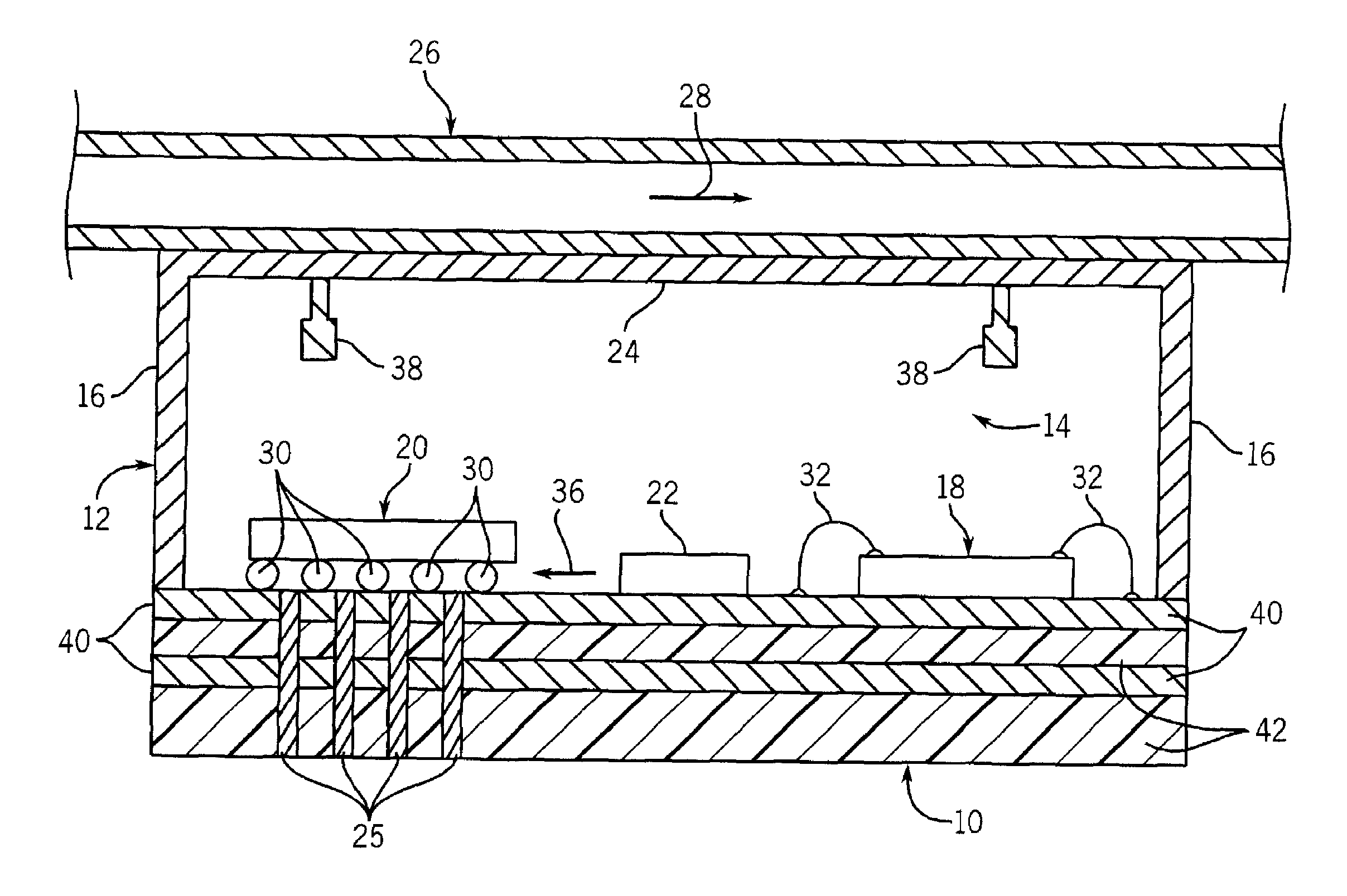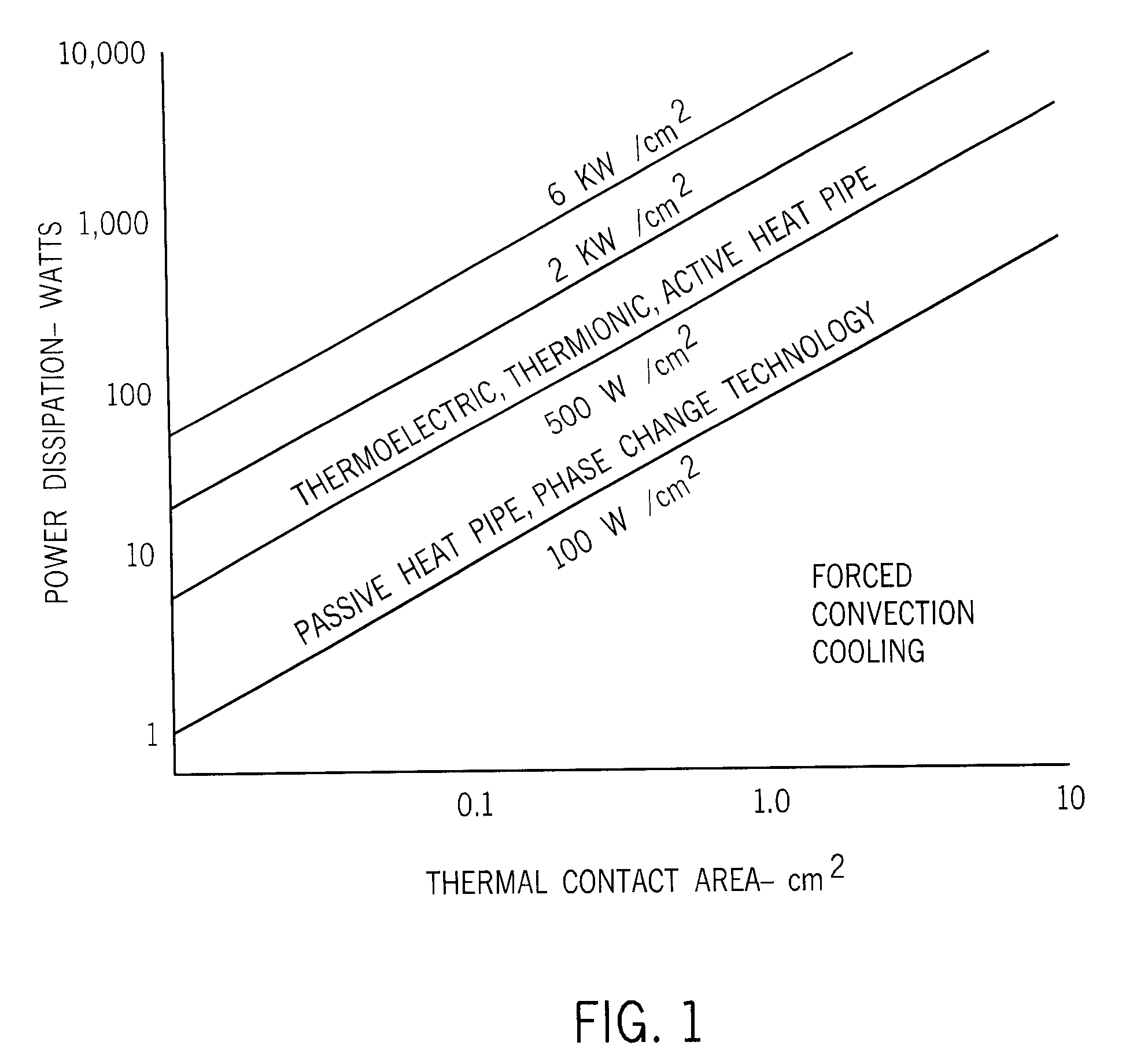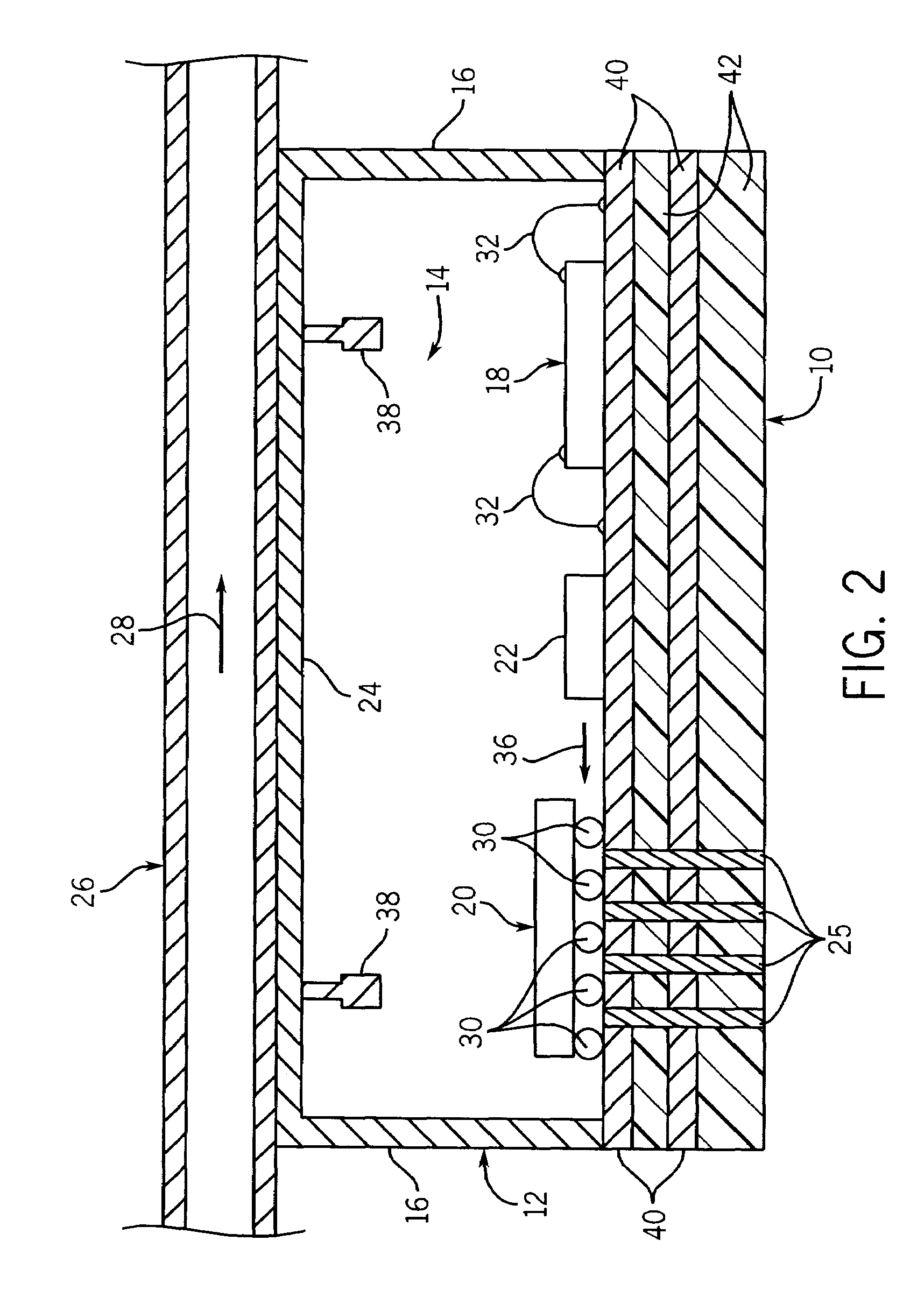Packaging for high power integrated circuits
a high-power integrated circuit and packaging technology, applied in the direction of semiconductor devices, semiconductor/solid-state device details, electrical apparatus, etc., to achieve the effect of increasing junction temperature, reducing the number of thermal interfaces needed, and increasing the thermal resistance of the conduction path
- Summary
- Abstract
- Description
- Claims
- Application Information
AI Technical Summary
Benefits of technology
Problems solved by technology
Method used
Image
Examples
Embodiment Construction
[0013]This invention is a completely self-contained and encapsulated “package” into which a high power integrated circuit (“chip”) such as an amplifier, or an entire subsystem (such as a radar “transmit-receive” module), can be installed to provide the necessary thermal and electrical environment to assure that the chip or multi-chip subsystem works correctly. The packaging approach not only assures that DC electrical power will be delivered to the chip(s) and AC signals will be brought into and led from the chip(s) in a correct manner, but also that the operating temperature of the chip(s) will remain below their maximum survivable operating temperature. This is accomplished by filling the package with a non-electrically conductive working fluid (or mixture) that is above its critical point. The primary package containing the chip(s) and a working fluid are completely hermetically sealed, and in the preferred embodiment the entire cooling process is a transfer of heat from the sour...
PUM
 Login to View More
Login to View More Abstract
Description
Claims
Application Information
 Login to View More
Login to View More - R&D
- Intellectual Property
- Life Sciences
- Materials
- Tech Scout
- Unparalleled Data Quality
- Higher Quality Content
- 60% Fewer Hallucinations
Browse by: Latest US Patents, China's latest patents, Technical Efficacy Thesaurus, Application Domain, Technology Topic, Popular Technical Reports.
© 2025 PatSnap. All rights reserved.Legal|Privacy policy|Modern Slavery Act Transparency Statement|Sitemap|About US| Contact US: help@patsnap.com



